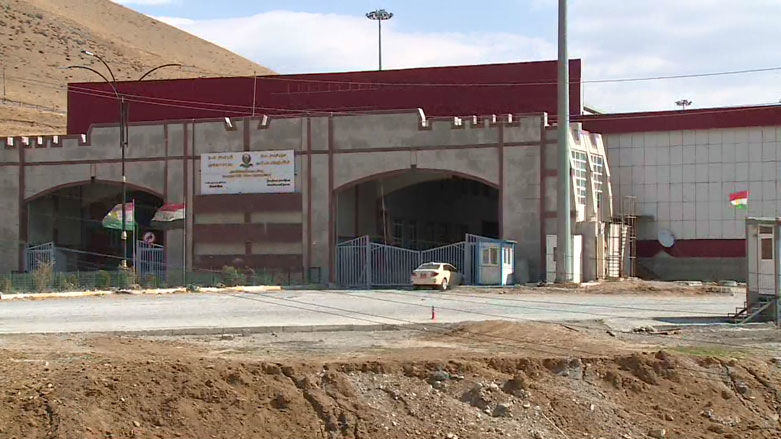Iran shuts down borders with Kurdistan same day as major Kurdish parties meet

ERBIL, Kurdistan Region (Kurdistan 24) – Tehran has shut down its border crossings with the Kurdistan Region in retaliation to the Sep. 25 referendum on independence as the leading Kurdish parties meet some 40 kilometers from the Iranian border.
A Kurdistan 24 correspondent confirmed the border crossings of Haji Omaran, Bashmaq and Parwezkhan closed on Sunday. The move comes as a delegation of high ranking officials from the two leading parties in the Kurdistan Region - the Kurdistan Democratic Party (KDP) and the Patriotic Union of Kurdistan (PUK) –are meeting in the Sulaimani Province.
“We are in contact with Iranian authorities who have closed the border. They have informed us they are meeting as we speak and that more information will be given regarding the closure,” reported Aram Sayakhan, the spokesman for the Bashmaq border crossing.
As Sayakhan noted, the border has been closed several times for short periods following the Sep. 25 referendum on independence for the Kurdistan Region.
“Iran has interest in keeping the borders open, so this might just be a temporary measure,“ he highlighted. “Trade and tourism have halted for the day.”
The Kurdistan Region's Prime Minister, Nechirvan Barzani, echoed the statement on Sunday. “Iran itself has been under embargo, so it understands how [sanctions] can affect a nation,“ he said.
“We hope the closure is temporary, as a definitive shut down serves the interests of no one.“
It is unclear if the other two official border crossings will also temporarily remain closed.
The spokesperson for the Minister of Foreign Affairs in Tehran on Sunday refuted the claims, stating the land borders remained open.
Tehran has previously threatened the Kurdistan Region with border closures. Earlier this month, the Iraqi Foreign Ministry officially asked Ankara and Tehran to close its borders and stop all trade and commercial dealings with the Kurdistan Region.
The relationship between Erbil and Baghdad quickly deteriorated following the Sep. 25 vote as Baghdad ramped up its collective punitive measures against the Kurdistan Region.
The Iraqi Federal Government requested Turkey and Iran only deal with the federal government and close all ports that were not under Baghdad’s control until the Kurdistan Regional Government (KRG) hand over the administration of border crossings to Baghdad.
Earlier this month, Iran held military drills on the Kurdistan Region’s border as well.
It is unclear why the border was closed on the same day Kurdish leaders were scheduled to discuss the ongoing crisis in the province of Kirkuk as Iraqi Forces and the Iranian-backed Shiite Hashd al-Shaabi militia continue to threaten an attack on the oil-rich, disputed southern area.
It was also rumored that Iranian Major General Qassem Soleimani was in the Kurdistan Region on Sunday for “talks about the escalating crisis,” according to Reuters.
The Iranian Quds Force Commander recently visited former Kurdish President of Iraq Jalal Talabani’s tomb in the province of Sulaimani.
His presence raises concerns about Iran’s influence on the Iraqi security forces which have, since Thursday night, gathered in southern Kirkuk. The Kurdistan Region’s security and intelligence labeled it “a dangerous indication” they planned to attack Kurdistan.
